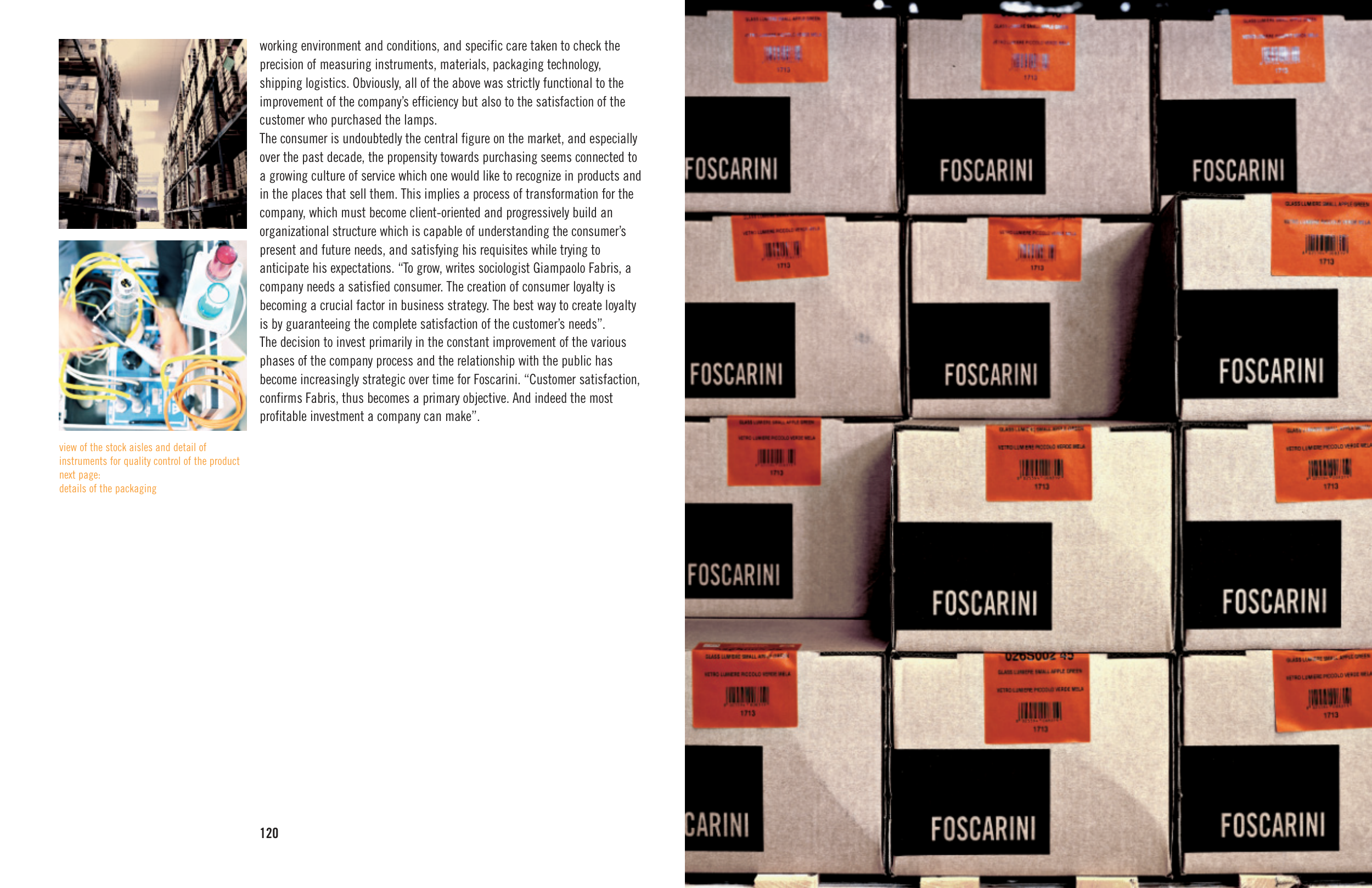120
working environment and conditions, and specific care taken to check the
precision of measuring instruments, materials, packaging technology,
shipping logistics. Obviously, all of the above was strictly functional to the
improvement of the company’s efficiency but also to the satisfaction of the
customer who purchased the lamps.
The consumer is undoubtedly the central figure on the market, and especially
over the past decade, the propensity towards purchasing seems connected to
a growing culture of service which one would like to recognize in products and
in the places that sell them. This implies a process of transformation for the
company, which must become client-oriented and progressively build an
organizational structure which is capable of understanding the consumer’s
present and future needs, and satisfying his requisites while trying to
anticipate his expectations. “To grow, writes sociologist Giampaolo Fabris, a
company needs a satisfied consumer. The creation of consumer loyalty is
becoming a crucial factor in business strategy. The best way to create loyalty
is by guaranteeing the complete satisfaction of the customer’s needs”.
The decision to invest primarily in the constant improvement of the various
phases of the company process and the relationship with the public has
become increasingly strategic over time for Foscarini. “Customer satisfaction,
confirms Fabris, thus becomes a primary objective. And indeed the most
profitable investment a company can make”.
view of the stock aisles and detail of
instruments for quality control of the product
next page:
details of the packaging


